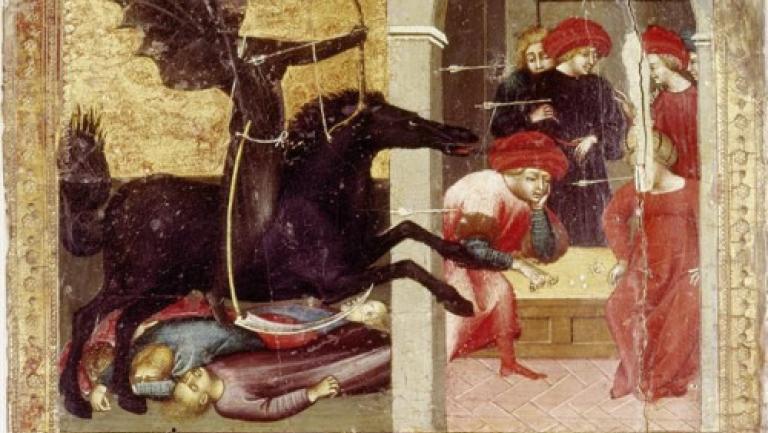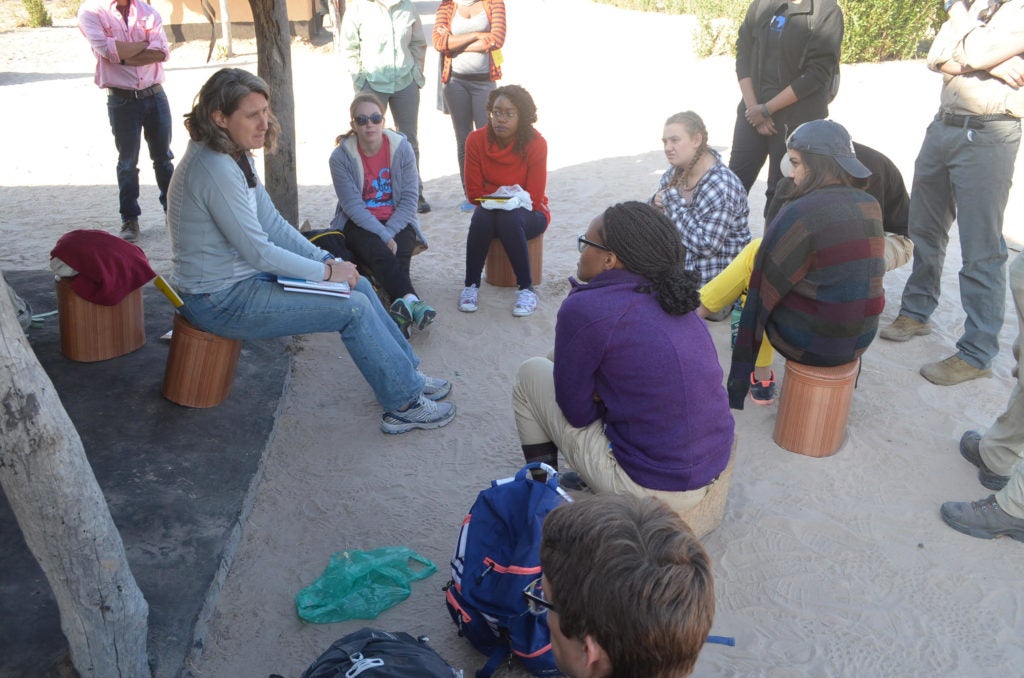Summer Programs

Global Medieval Studies Study Abroad Programs
Summer programs are cross-listed with the Global Medieval Studies program and can therefore count towards a major or minor.
Plague, Tuscany, & the Globalization of a Disease
Location: Fiesole, Italy
Length: 3 weeks
Arrive: June 26 | Depart: July 18
Faculty: Dr. Timothy Newfield and Dr. Elena Brizio
This class presents both micro and macro histories of the plague. On the one hand, you will learn about and visit multiple plague sites in Tuscany, private and public spaces (like hospitals, foundling homes, and churches) constructed to help contemporaries cope with the disease and medieval and early modern art that convey the magnitude of the mortality Italians witnessed firsthand. Florence in particular is used as an ‘open book’ on the premodern plague experience. Key plague sites are also visited in Lucca, Pisa, Prato, and Siena. Yet, on the other hand, the Black Death is presented not as an Italian or European disaster but as an Afro-Eurasian catastrophe. You will be introduced to plausible evidence of late medieval and early modern demographic ruin from regions as disparate as East Asia, Sub-Saharan Africa and Greenland.
This course is thus deeply multidisciplinary. It is at once a history, biology, and art history class. You will be introduced to the written and architectural sources for plague as well as to the evolutionary biology of Yersinia pestis, the bioarchaeology and detection of pre-laboratory disease, and the methods of the paleopathology and paleogenetic sciences. In other words, they come face-to-face with the urban fabric of premodern public health, the written record of mass death, and the bones of medieval plague victims.
Georgetown in Zambia: The Africa Field School
Location: Livingstone & Basanga, Zambia
Length: 4 weeks
Arrive: July 5 | Depart: August 1
Faculty: Professor Kathryn M. de Luna (Associate Professor. Department of History)
What are the connections between environmental change, culture, and subsistence in early African history? How do you reconstruct the history of communities that left behind no written records? Explore these and other fascinating research questions as part of Georgetown’s newest summer study abroad program, the Africa Field School. In this program, you’ll experience what it means to conduct real field-based research in Africa working alongside scholars from around the world on a multi-year research project in central Zambia. You will conduct original research across a number of disciplines, including Archaeology, Soil Science (to produce environmental and climate records), and History in order to reconstruct the environment, climate, and culture of the region during watershed transitions in Medieval African History. You’ll develop and enhance your own research skills, participate in data collection and analysis, and present findings to community partners. You can even propose to conduct research connected to a future Senior Thesis or Capstone project.
In addition to introducing you to field-based research, the program will give you insight into links between deep and ‘undocumented’ pasts and the present, as well as between the humanities, social sciences, and physical sciences.


